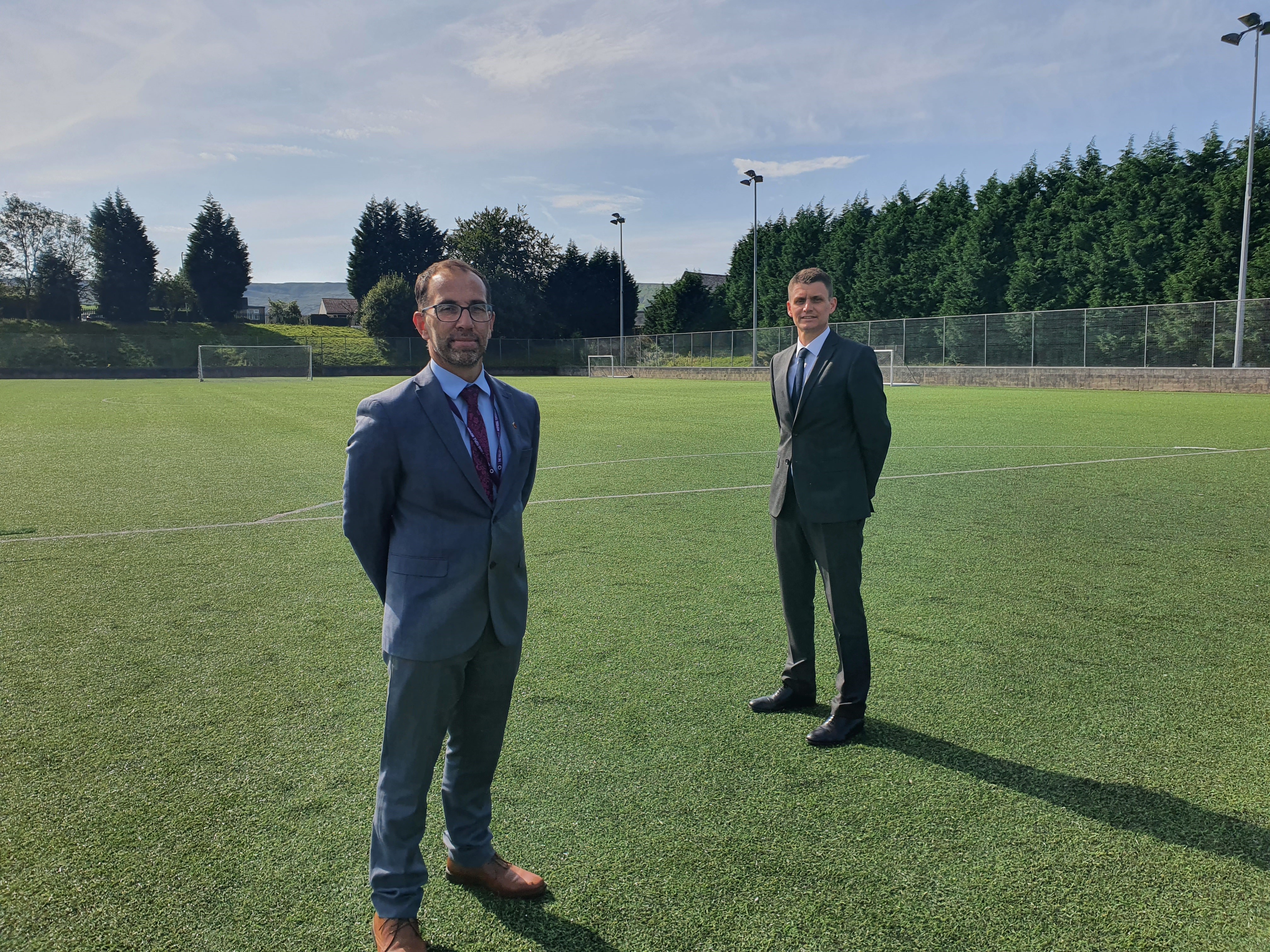
Steven Taylor is Deputy Principal at The Valley Leadership Academy in Bacup, Lancashire. He shares how staff have found new ways of working and interacting to keep everyone safe and minimise risk.
At The Valley Leadership Academy, our top priority is keeping our school community safe so that high-quality learning continues. We have a mantra: we all have our part to play. The personal commitment required is the same for staff and pupils. We are genuinely all in this together.
Staff training is key
Staff training at the start of the term was crucial. We knew that our first INSET day was our best opportunity to explicitly define the new culture for existing staff and for new recruits. This entailed reconsidering the small things that we usually do as a matter of habit, including how the all-important refreshments would be consumed! Staff were enthusiastic to reunite after a long period apart. We had to pre-empt their instinct to get close to one another. We did this through signage, seating arrangements and modelled welcomes. As leaders we consciously showed and described distancing behaviours. Setting the example ourselves in everything that we did, and labouring the point, was one of the most significant actions we undertook.
Training ourselves to embed new habits to keep space between us has required a lot of thought, but we know it’s essential if we are to reduce transmission of COVID-19. As a team, we have committed to a set of non-negotiables: no hugging, no handshakes, no high fives and no car sharing. Self-checking that we are 2 metres away from colleagues has become second nature. As you’ll read, we have found new ways of working – some that we intend to keep even when the virus is no longer dominating our thoughts.
We still work collaboratively with other schools and the Star central team but our ways of doing so are also COVID-secure. We have managed to take full advantage of new technology - our staff are fully involved in a programme of training events with schools from across the country which would ordinarily have required travel and time away from school commitments.
Small changes to normal routines
Our regular meetings now take place online and all our staff are efficiently using Microsoft Teams to share ideas and resources. We support each other remotely and have actually found this to be a really efficient way to conduct meetings and training.
The staff room has changed too. We have removed some furniture and put a notice on the door limiting the number of people who can go in at one time. Over the summer we made plans to ensure that all our staff had sufficient space to work in a safe way when they are not with pupils. Our pupils stay in ‘home base’ rooms as much as possible during the school day and so we identified spaces in each different zone in school where staff could work, as they no longer ‘owned’ specific classrooms. We allocated staff time on a training day to make sure these spaces were stocked with the teaching resources for the lessons that would be taught in that zone. This has saved time as the term has progressed and avoided teachers having to transport materials around school as they move to their different classes.
We have managed and monitored movement around school relentlessly. When staff move between different classrooms, they wear masks as an added safety measure. In classrooms, we have made distancing visible by sticking tape on the floor, keeping 2 metres between teachers and pupils. We can’t walk around the class in the way we used to, so we have adapted how we teach instead. Our staff are enthused by the new challenges this has brought in terms of pedagogy, and we share our ideas on ‘new normal’ lessons through our weekly CPD programme – only now staff share ideas on Microsoft Teams rather than in face-to-face training sessions.
We all have a part to play
The restrictions in place have not felt oppressive and in many ways have actually helped the students manage their transition back to learning after such a long period away from the school site. The calm, orderly way in which our school operates has helped support our young people at a time when some were feeling anxious about getting back in a routine that enables safe and effective learning.
We’ll continue to make changes and constantly reflect on how we’re operating. Maintaining distance as a default behaviour is difficult for adults and children alike, but it’s the only way we will protect each other. We will keep refining how we work and explicitly modelling expectations. Because we all have a part to play.